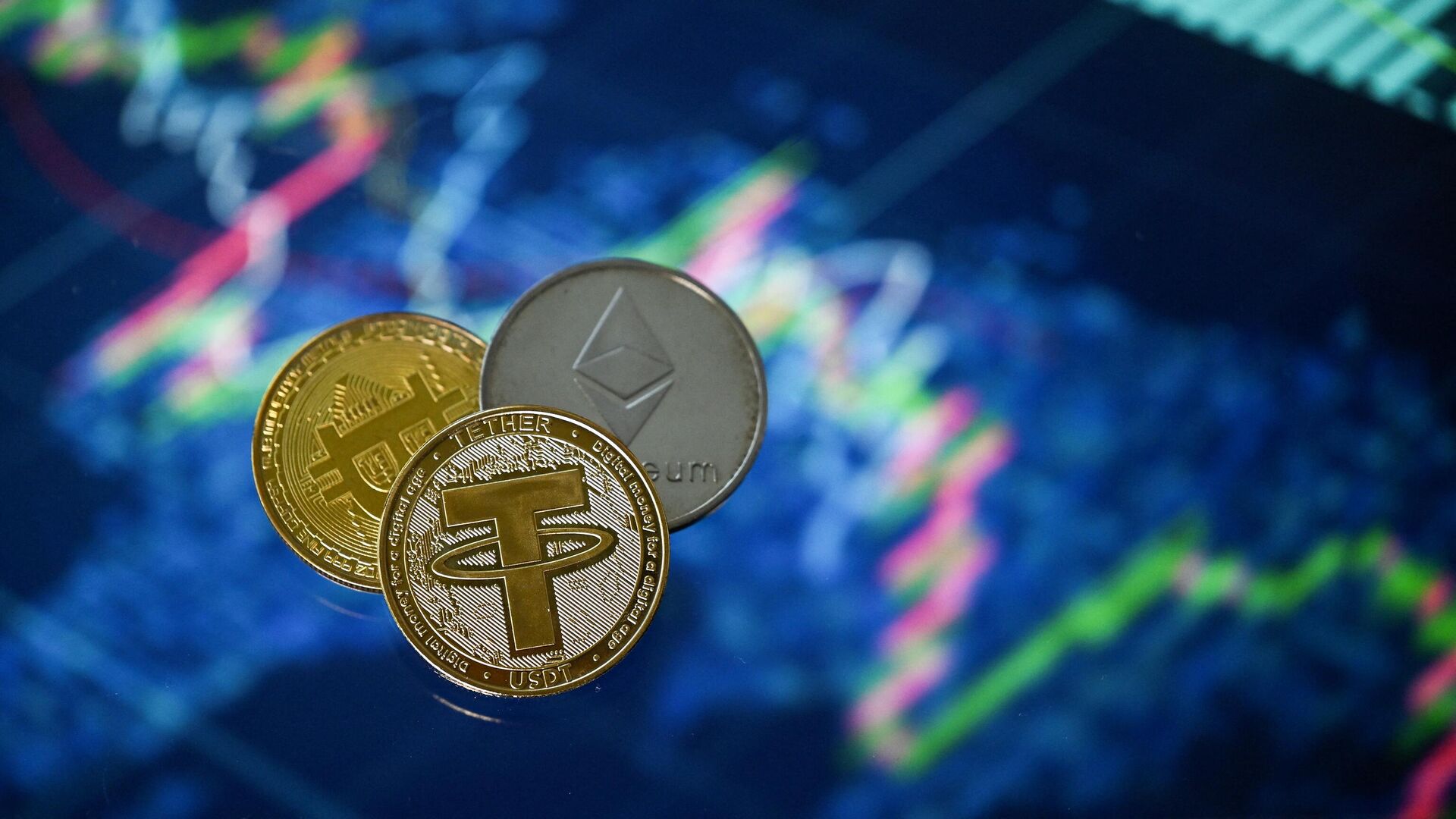https://sputnikglobe.com/20221128/nigeria-will-not-promote-crypto-until-investors-are-protected-officials-say-1104773166.html
Nigeria Will Not Promote Crypto Until Investors Are Protected, Officials Say
Nigeria Will Not Promote Crypto Until Investors Are Protected, Officials Say
Sputnik International
According to an official, cryptocurrencies will not be included yet in Nigerian government's plan to improve trading in digital assets.
2022-11-28T13:43+0000
2022-11-28T13:43+0000
2022-11-28T13:43+0000
africa
west africa
finance
cryptocurrency
nigeria
cryptocurrency exchange
https://cdn1.img.sputnikglobe.com/img/07e6/0b/1c/1104775754_0:320:3073:2048_1920x0_80_0_0_5d6b29d5879bb10cb50bb125ab752a0a.jpg
Cryptocurrencies will not yet be included in the Nigerian government's plan to improve trading in digital assets, the country's Securities and Exchange Commission (SEC) declared, noting that regulators must first agree on standards for protection of investors. In May, it was decided to develop trade in 50 assets by 2025 with protection of investors and promotion of transparency.“We are looking at digital assets that really protect investors,” said Lamido Yuguda, Director-General of the commission, underlining that cryptocurrency exchanges do not have access to the banking platform needed to drive their trades in the West African country.For the country's government, the main concern about cryptocurrencies is their volatility. In 2021, the Nigerian central bank issued an order stopping commercial lenders' crypto transactions and operations which were considered a "threat to the financial system".For now, Yuguda pointed out, the SEC will promote investment in “sensible digital assets" that allow investment protection. The commission also plans to explore blockchain for the advancement of virtual and traditional investment products.The year 2022 has so far been troubled for the crypto market. In the first half of the year, Bitcoin and Ethereum - the world's largest and second-largest cryptocurrencies respectively - fell more than 50 percent from all-time highs reached in late 2021.Earlier this month, the firm FTX - that used to be the world's second-largest cryptocurrency exchange - went bankrupt after media and investors raised suspicions about the company being a financial bubble. According to court files, FTX owes $3.1Bln to 50 of its biggest customers.The company's bankruptcy led to further disruption in the market because of fears that other platforms can follow suit. It was later reported that cryptocurrency lending platform BlockFi, once valued at $3Bln, was preparing to file for bankruptcy because of uncertainty created by the collapse of FTX.
africa
west africa
nigeria
Sputnik International
feedback@sputniknews.com
+74956456601
MIA „Rossiya Segodnya“
2022
News
en_EN
Sputnik International
feedback@sputniknews.com
+74956456601
MIA „Rossiya Segodnya“
Sputnik International
feedback@sputniknews.com
+74956456601
MIA „Rossiya Segodnya“
cryptocurrencies in africa, cryptocurrencies in nigeria, which country invests in crypto the most, bitcoin in africa, ethereum in africa
cryptocurrencies in africa, cryptocurrencies in nigeria, which country invests in crypto the most, bitcoin in africa, ethereum in africa
Nigeria Will Not Promote Crypto Until Investors Are Protected, Officials Say
According to Paxful, a crypto trading platform, Nigerians make the largest number of cryptocurrency transactions outside the US. A study by price tracker CoinGecko showed that since April, when digital assets began to decline, Nigerians showed more interest in cryptocurrencies than investors from any other country.
Cryptocurrencies will not yet be included in the
Nigerian government's plan to improve trading in digital assets, the country's Securities and Exchange Commission (SEC) declared, noting that regulators must first agree on standards for protection of investors.
In May, it was decided to develop trade in 50 assets by 2025 with protection of investors and promotion of transparency.
“We are looking at digital assets that really protect investors,” said Lamido Yuguda, Director-General of the commission, underlining that cryptocurrency exchanges do not have access to the banking platform needed to drive their trades in the West African country.
“The commission is in the business of protecting investors, not in the business of speculation,” the official underlined. He added that “any asset that is traded in the Nigerian capital market requires the joint approach of different regulators.”
For the country's government, the main concern about cryptocurrencies is their volatility. In 2021, the Nigerian central bank issued an order stopping commercial lenders' crypto transactions and operations which were considered a "threat to the financial system".
For now, Yuguda pointed out, the SEC will promote investment in “sensible digital assets" that allow investment protection. The commission also plans to explore blockchain for the advancement of virtual and traditional investment products.
The year 2022 has so far been troubled for the crypto market. In the first half of the year, Bitcoin and Ethereum - the world's largest and second-largest cryptocurrencies respectively - fell more than 50 percent from all-time highs reached in late 2021.
Earlier this month, the firm FTX - that used to be the world's second-largest cryptocurrency exchange - went
bankrupt after media and investors raised suspicions about the company being a financial bubble. According to court files, FTX owes $3.1Bln to 50 of its biggest customers.
The company's bankruptcy led to further disruption in the market because of fears that other platforms can follow suit. It was later reported that cryptocurrency lending platform BlockFi, once valued at $3Bln
, was
preparing to file for bankruptcy because of uncertainty created by the collapse of FTX.


